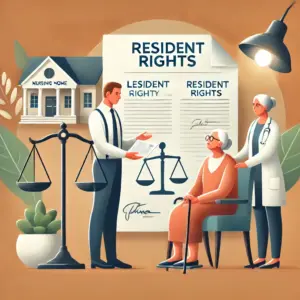Law
How to Safeguard Your Loved One from Mistreatment in Care Facilities
Table of Contents
- Recognizing Signs of Mistreatment
- Communicating Effectively
- Researching Care Facilities
- Understanding Legal Protections
- Building a Support Network
- Advocating for Resident Rights
- Utilizing Technology Tools
- Getting Professional Help
Recognizing Signs of Mistreatment
Ensuring the safety of loved ones in care facilities is a top priority for families. Unfortunately, mistreatment can occur, and recognizing the signs early is essential to prevent any potential abuse. Physical indicators such as bruises, unexplained injuries, or sudden weight loss are red flags that should never be ignored. Aside from physical signs, emotional cues play an equally important role. If a loved one becomes withdrawn, unusually quiet, or expresses fear of particular staff members, these can be indications of psychological distress or neglect. It’s crucial to address these concerns immediately by opening a dialogue with care staff and, if necessary, seeking external guidance. To understand more about safeguarding measures, My Nursing Home Abuse Guide offers insightful resources on detecting and dealing with mistreatment effectively.

Communicating Effectively
Effective communication is the cornerstone of ensuring quality care for loved ones in a nursing home. By establishing regular contact with care facility staff, you develop a network of communication that leads to transparency and trust. Regular visits, frequent phone calls, and attending care meetings provide opportunities to discuss changes or concerns about your loved one’s care regimen. Having open lines of communication helps spot any irregularities early and promptly address them with the staff. Additionally, understanding the communication channels available within the facility empowers you to follow up on any issues diligently, thus fostering an environment of responsive care.
Researching Care Facilities
Selecting the right care facility is a process that demands careful evaluation and research. The decision affects not only the quality of medical care but also the emotional well-being of your loved one. While online reviews and ratings offer an overview of a facility’s reputation, they should be complemented by in-person visits and assessments. Touring the facility, interacting with current residents, and speaking with staff members provide insights beyond what’s written in promotional materials. Organizations like AARP offer comprehensive guidelines to help families choose environments prioritizing dignity, safety, and quality of life.
Understanding Legal Protections
Residents in care facilities are protected by laws that ensure their rights to personal freedom and protection from abuse or neglect. Understanding these legal rights allows family members to become effective advocates. Protections under local health regulations and federal laws like the Nursing Home Reform Act outline the minimum standards of care residents should receive. This knowledge empowers you to challenge any inadequacies in care and seek remediation swiftly. Should you need to escalate issues, knowing the legal framework and processes in place can make a significant difference in successfully addressing grievances.
Building a Support Network
A robust support network of family, friends, and professionals is crucial in providing peace of mind when caring for a loved one in a nursing home setting. Coordinating regular visits to the facility strengthens this network, ensuring someone is always available to observe and report on care standards. Online forums and local community support groups also offer spaces for families to share experiences and advice. A well-coordinated network acts as an informal surveillance team and an emotional support unit, advocating effectively on behalf of the resident, especially when quick decisions are necessary.
Advocating for Resident Rights
Ensuring your loved one’s rights are upheld requires informed and assertive advocacy. Rights such as privacy, autonomy in decision-making, and involvement in care planning are fundamental aspects of quality care in nursing homes. While care facilities are required to uphold these rights, active involvement and advocacy from family members often serve as crucial support for the residents in exercising these entitlements. Engaging with facility administration to discuss care plans and participating in resident councils are proactive ways to influence the quality of care, ensuring that the loved one’s preferences and general well-being are prioritized.
Utilizing Technology Tools
Technological advancements have made it easier for family members to stay connected and informed about their loved one’s care. Tools such as video calls allow for regular face-to-face interaction, reducing feelings of isolation for residents. When used appropriately and with consent, monitoring apps and visual devices enable families to have an ongoing update of their loved one’s daily routine and health-related events. These tools are not merely for oversight but also act as a means to provide emotional support and show presence, even from a distance, thereby ensuring continued engagement with the resident’s care.
Getting Professional Help
There are circumstances where seeking professional help becomes inevitable. Situations involving legal complexities or severe neglect warrant the expertise of elder rights attorneys or healthcare advocates. These professionals offer the knowledge and skills to navigate the legal landscape effectively and resolve issues that families may not handle alone. Involving a professional can ensure adequate resolutions are reached swiftly, protecting the resident’s rights and enhancing their quality of life in the long term.














